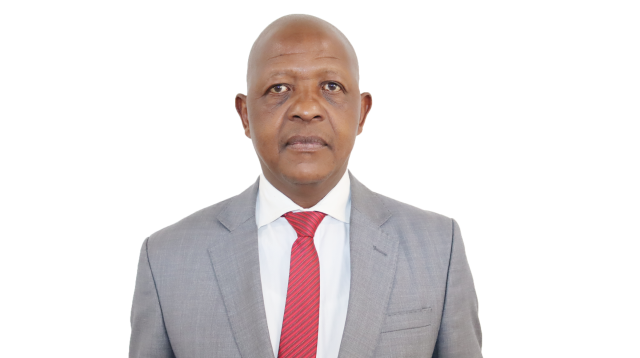…as MP takes umbrage with “fake” DC circular
Mohloai Mpesi
DEMOCRATIC Congress (DC) Member of Parliament (MP) for Makhaleng constituency, Mootsi Lehata, believes that the “fake” DC circular—allegedly issued by the party’s secretary-general, Tšitso Cheba—is meant to discredit him and others ahead of the DC constituency elections slated for the end of this month.
Mr Cheba is alleged to have issued a circular informing DC members of so-called “rebels,” including Mr Lehata, who are “destabilizing” the party. The notice, purportedly issued on February 21, 2025, enlists five MPs: Mr Lehata, Lehlohonolo Hlapisi for Maliepetsana constituency, Peiso Kelane for Maletsunyane, Maimane Maphathe for Matelile and Mokherane Tsatsanyane – a Proportional Representation MP.
The letter also names the former head of publications of the party, Bothata Mahlala, former chairperson Mosala Mojakisane, Deputy Leader of the Women’s League, Likeleli Tampane, and several others.
When contacted by this publication on Friday to confirm the validity of the letter, Mr Cheba rubbished it as “fake,” claiming it was meant to “spread confusion and destabilize the party.”
However, Mr Lehata, who is also aware of the letter, is suspicious of its timing, as it emerges just before the election of constituency committees at the end of this month. This, he argues, casts doubt on whether the letter is truly fake. He believes the letter was deliberately orchestrated to turn DC followers against the people listed so that they are excluded from constituency committees or never re-elected if they are already members.
Part of the letter reads: “It has come to the attention of the DC NEC that there are members of the party who have turned rebels against the party to destabilize it.
“They do this by trying to make other members lose trust and confidence in the leadership. Our study indicates that this mayhem is caused by people who have not healed from the NEC elections, where they failed to change the committee.
“According to section 9.1 of the DC Constitution, members are expected to respect and support elected committees and help them further the mandate of the party.
“Failing to abide by this section of the constitution would lead to the expulsion of each member. The committee has, therefore, publicized the list of those who spread confusion in the party to make constituencies aware, especially as the party prepares to renew the constituency committees.”
Mr Lehata said he first saw the letter in a WhatsApp group where it was shared by Mr Cheba himself. The letter was accompanied by an audio clip in which Mr Cheba explained that it was fake and urged members not to fall into its “trap,” as it was designed by the enemies of DC to spread confusion and cause division within the party.
However, Mr Lehata remains unconvinced by Mr Cheba’s explanation.
“I have just seen the letter, and it comes with an audio clip saying it is fake. Mr Cheba sent it to a group of DC Members of Parliament to inform us that the letter is fake and not true.
“But the timing is perfect for this ‘fake letter’ because DC is electing constituency committees at the end of the month (next weekend). So, the ‘fake letter’ appears just as we go for elections, labelling certain people as rebels—it is as good as saying those people should not be elected at the elective conference.
“It was deliberately orchestrated to discredit those listed so that their constituencies lose trust in them.”
He added: “There is no smoke without fire. This was done intentionally so that certain lawmakers are not part of those committees, and those who are currently in committees are not re-elected.
“When you are a Member of Parliament, the goal is to ensure a committee that is against you is elected. When you are a member of a committee, the aim is to make sure you are not re-elected. Hence, I am saying the timing of this fake letter is too convenient when we go for elections.”
Mr Cheba insisted that the letter was a fabrication meant to confuse DC members and urged them to ignore it.
“That letter is fake, and we are asking members not to be misled by it. It was designed to cause division. We have already written to constituency members to make them aware of it.
“If members of the party allow themselves to be deceived by this fake letter, they will fall into the hands of our enemies. But if we dismiss it, the enemy will be ashamed.
They want to see confusion in the DC. We have never issued such a letter. I urge DC members not to allow themselves to be manipulated. It is fake, and we should not waste time arguing about it.”
Asked about the letterhead, which closely resembles an official DC document, Mr Cheba said it was possible that the letterhead was forged to make it look authentic.
“We live in a world where technology has advanced, and it is possible that the DC letterhead was faked. We saw similar incidents after the formation of the RFP. We don’t have to be confused by it.”
However, Mr Cheba dropped the call when asked whether his signature was also forged.
The DC executive committee members have been criticised for clinging onto positions and despising those who dare to challenge them.
Mr Lehata had sought to become the DC chairperson in last month’s executive committee elections. However, he lost to Molise Mofolo, the former deputy secretary general.
Mr Mahlala fell out with the party’s executive committee after he had sought to unseat the DC leader, Mathibeli Mokhothu.
For his part, Mr Mahlala said: “It was sent to me by several people, but no one has said anything about it. I am no longer a member of the executive committee but just an ordinary DC member, so I wouldn’t know if its legit. If it happens to be true, I will just wait to see what action they take.”
Ms Tampane, who is also named in the letter, said she had seen it but could neither confirm nor deny its authenticity as she had yet to consult with her constituency. She is in the bad books as she was accused of supporting Mr Mahlala’s quest to become DC leader.
“I have just seen the letter. It was sent in the Women’s League WhatsApp group.
“Since I have not received it formally, it is difficult for me to confirm or deny its authenticity. However, I take my mandate from the Senqu constituency. If anything, I will seek clarification from my constituency.”
Post Views: 172












